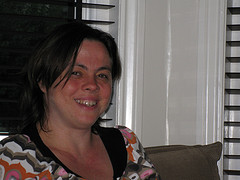In February, I will be starting a third year OU course called Total War.
We shall be spending a lot of time looking at the wars that tore generations of lives apart in the first half of the twentieth century. As we approached a weekend of remembrance for the fallen, I decided to begin some personal pre-course work on the First World War. Here are some disjointed thoughts about the beginning of that work.
The Imperial War Museum
I passed about an hour and a half in the First World War galleries. I spent a long time reading all the information, looking at the uniforms and the guns and the posters. I took some notes. I even followed (at a distance) a group of kids into 'The Trench'. At the end of it all however, I felt strangely unmoved by the experience. Walking through the Trench seems pointless. War as theatre not a theatre of war. Even standing alone (after the kids had gone) and just listening, it conveyed nothing to me. There is a lot about the The Western Front in the First World War Galleries but anyone seeking to find out more about the other battlefronts were a little short changed. The Middle East section (arguably the most interesting from a modern point of view) is small and a little cursory. How it all links up with now is somehow missing.
Maybe that's for me to work out and I'm being too demanding. I'm beginning to feel that much of the work that the IWM does online is of greater importance than the permanent exhibitions. I also think their temporary exhibitions are probably better curated. One, a while back, on the Spanish Civil War was amazing (I even did something I never do and bought the catalogue). Have museums gone too far down the road of 'entertainment'? I also couldn't help feeling strange about the huge display of camouflage merchandise clearly aimed at little boys. What's the message here? Is there one? This is after all a war museum, so perhaps I'm asking too much to feel the 'pity' of war.
First World War Poetry, edited by Andrew Motion
Mooching around the bookshop at IWM (and slightly bemused by the 'between the wars' section which really should be named the Hitler section - really, IWM, lots of other history happened between 1918 and 1939), I came across a slim volume of poetry published by Faber of First World War Poetry. Having always read the trusty Jon Silkin edited Penguin edition, I debated whether I needed another 'collection'. I'm glad I bought it. Here was poetry about the war by lesser known poets which conveyed in a few lines more about this war than hours spent looking at museum exhibits. Helen Mackay's Train with its heartbreaking subject matter, Ivor Gurney's gentle lyricism as well as the more familiar trio of Rosenberg, Owen and Sassoon all picked me up and wrung my heart out. The First World War continued to echo down the years so the collection also includes poems by those who never fought and by women who both served and stood and waited.
Because our fathers lied
Many fine articles were written about the wars this year but for me none was finer than this piece by Christopher Hitchens. With his characteristic clarity, he discusses Kipling's desire to see his son at the front, the poets of war and how this all relates to now.
Photo by Shelley Usher on Instagram






No comments:
Post a Comment